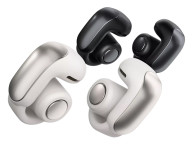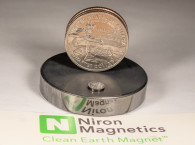Furthering the Art of Fine Audio
On February 25, the audio world lost a great visionary and leader, Edward T. Dell, Jr. I first became acquainted with Ed soon after I graduated from college in 1970. A longtime electronics/speaker/audio hobbyist, I frequently bought parts to feed my habit from McGee Radio in Kansas City, MO. At one point, the parts began arriving with a free magazine: The Audio Amateur. I read and thoroughly enjoyed the magazine, and found that it was a quarterly publication created by someone named Ed Dell from New Hampshire.
At that time, I worked for Western Electric as a writer of technical documents for telephone-system engineering. I also wrote in my spare time, my first effort being an article that was accepted for publication by Audio magazine, but then never actually published. I subsequently wrote a piece on the acoustics of wood for guitar making and it was published. My acquaintance with The Audio Amateur led to my third article?this one a tutorial on microphones?which was published in The Audio Amateur in 1972 or 1973 (I have the magazine, but it says 1972, Issue 4, on the front, and the editorial and copyright date indicate 1973.)
Never having understood the concept of “enough things to do,” I had opened Ye Musick Shoppe, a small musical instrument shop, and my wife and I published a newsletter, Ye Musepaper, as a promotional piece for the shop. We mentioned this in correspondence with Ed, and he asked for a copy, since both our newsletter and TAA were created on typewriters and hand-justified. Ed was almost as interested in the process of publication as in the subjects of the articles. Perhaps that is why he was so successful in fostering interest in audio through his expertly crafted magazines.
A self-described dilettante, Ed was more of a hobbyist than what is usually called an audiophile in today’s jargon. Although quite interested in the classic audio electronics and speakers, he was passionate about building audio equipment. He once wrote an editorial discussing the importance of hobbies, particularly electronics hobbies, for our national technological competence and even national security. During my third career?this one as a college electronics instructor?his point was clearly driven home for me. My all-time-best two students entered the electronics engineering technology program after having been hobbyists for years: one, a designer/builder/modifier of guitar amplifiers, and the other, an Extra Class ham radio operator. Other students who were equally gifted intellectually and academically never seemed to have the “feel” for electronics that these two longtime hobbyists had.
TAA included articles on all phases of audio including amplifiers, preamps, test equipment, speakers, and microphones. In the late 1970s, Ed noticed a substantial interest in building speakers, and publication of Speaker Builder magazine began. This periodical was published eight times per year, and became quite popular. Another category of interest appeared in The Audio Amateur, culminating in the 1988 introduction of Glass Audio, a magazine devoted to audio equipment using vacuum tubes. Interestingly, within the first few years of Speaker Builder’s publication, a reader survey showed that audio professionals made up a large proportion of the readership. Ultimately, this realization led to two consequences. The first was the 1987 introduction of Voice Coil, a newsletter for speaker professionals. Ed secured the services of prominent speaker-consultant Vance Dickason as editor. Beginning as a simple newsletter, VC blossomed into the leading magazine worldwide for speaker professionals. The second outcome of finding out how many subscribers to The Audio Amateur and Speaker Builder were professionals was a name change from The Audio Amateur to Audio Electronics, which took place in 2000.
Seeing a need for a single source of supplier information in the speaker and vacuum tube industries, Ed began an annual and a biannual publication: the Loudspeaker Industry Sourcebook, and the World Tube Directory.
The success of Voice Coil led to the introduction of Multimedia Manufacturer in 2003. Then, after decades of expanding its offerings, Ed’s company, Audio Amateur, consolidated some magazines. Audio Electronics, Speaker Builder, and Glass Audio became audioXpress. Publication of Multimedia Manufacturer ceased. Voice Coil continues to be the premier periodical for speaker professionals.
In 2011, at the age of 88, Ed Dell sold Audio Amateur to Elektor International Media, which continues to publish audioXpress and Voice Coil, as well as Circuit Cellar, a monthly magazine (print and digital) covering the topics of embedded hardware, embedded software, electrical engineering, and computer applications.
Along with his magazine publications, Ed Dell also promoted the hobby and profession of audio by publishing books such as Vance Dickason’s Loudspeaker Design Cookbook and by maintaining, at various times, a mail-order and online store selling kits, books, test equipment, design and testing software, and specialized components for audio.
In addition to providing continuing education for many longtime audio aficionados, Ed Dell left a lifetime legacy to developing audio enthusiasts and up-and-coming professionals that cannot be overstated. That legacy lives on, but Ed will be sorely missed.
—Richard Honeycutt, an engineer, teacher, audio enthusiast, and audioXpress columnist, is a consultant in acoustics and electroacoustics.






